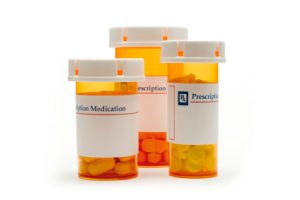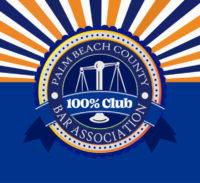Defective Drugs
Defective and Dangerous Drugs Attorneys
West Palm Beach and Palm Beach County
 Pharmaceutical companies manufacture and market hundreds of new drugs each year. More than three billion medical prescriptions are written each year according to the Food and Drug Administration (FDA), who regulates and approves each product. While these drugs help in the fight against disease and illness, many carry serious side effects and even death. And in some cases, pharmaceutical companies place profits ahead of consumer safety.
Pharmaceutical companies manufacture and market hundreds of new drugs each year. More than three billion medical prescriptions are written each year according to the Food and Drug Administration (FDA), who regulates and approves each product. While these drugs help in the fight against disease and illness, many carry serious side effects and even death. And in some cases, pharmaceutical companies place profits ahead of consumer safety.
Dangerous drugs are often the result of FDA loopholes such as the 501(K) approval process, regulatory gaps, drug reps failing to disclose side effects, insufficient testing of long-term problems, off– label marketing or more.
Pharmaceutical and drug manufacturers should and can be held responsible for injuries. Our defective products attorneys have handled and litigated cases involving Asbestos, the COX-2 inhibitors VIOXX, Celebrex and Bextra.
Please note that in some matters, we may co-counsel or refer the case to another lawyer or law firm.
We are currently investigating cases involving
Abilify (Abilify Maintena and Aristada), manufactured by Otsuka Pharmaceutical Co. and Bristol-Myers Squibb Company, is an Antipsychotic drug marketed to treat schizophrenia, bipolar disorder, depression, and Tourette syndrome. It is also marketed to treat irritability associated with autism. Claims against Abilify are that the drug was negligently manufactured and designed, and the drug maker failed to provide adequate instructions and warnings of its risk to the public. The major claim against the manufacturers is that they knew of the alleged tendency for causing compulsive behaviors.
Osaka, Japan-based Takeda Pharmaceutical Company, Ltd. manufacturers a popular Type 2 diabetes drug called Actos. The Food and Drug Administration (FDA) has announced that ACTOS may be associated with an increased risk of bladder cancer; and he American Diabetes Association presented a study linking ACTOS with an eye disease that can lead to blindness.
Erectile Dysfunction (ED) drugs, such as the prescription medications Viagra (Sildenafil Citrate) and Cialis (Tadalafil), are used to treat erectile dysfunction and high blood pressure in the lungs (pulmonary arterial hypertension). A major new claim against the manufacturers of Viagra is that they failed to warn users of the potential development of melanoma.
Pradaxa, manufactured by Boehringer Ingelheim, is an anticoagulant (thrombin inhibitor) that helps prevent the formation of blood clots. It is also used by people with atrial fibrillation to reduce the risk of a stroke and blood clots. Pradaxa is also used by individuals to treat or reduce blood clots in the leg veins (deep vein thrombosis, or DVT) or lungs (pulmonary embolism, or PE). The primary claim against the pharmaceutical company was it failed to warn consumers about the risk of severe bleeding. Pradaxa was a blood thinner that, when launched, did not have an antidote to reverse its bleeding events. Unfortunately, many patients who used Pradaxa lost their lives or reported serious side effects.
Proton Pump Inhibitor (PPI) drugs such as Nexium (Esomeprazole), Prevacid (Lansoprazole), Prilosec (Omeprazole), AcipHex (Rabeprazole), Protonix (Pantaprazole), Zegerid (Omeprazole), and Dexilant (Dexlansoprazole) are used to treat gastroesophageal reflux disease (GERD), stomach ulcers, heartburn, indigestion, acid reflux, a damaged esophagus, and high levels of stomach acid. Today, an estimated 15 million Americans use prescription PPI medications for heartburn and acid reflux.
PPI’s are linked to dangerous complications including kidney disease, kidney infection, kidney failure, heart problems, heart disease and end-stage renal disease. Some patients require dialysis, kidney removal, kidney transplants, while others result in death.
Risperdal is an atypical antipsychotic manufactured by Janssen Pharmaceuticals (a subsidiary of healthcare giant Johnson & Johnson), which has been prescribed to children for bi-polar disorders, autism, irritability, aggression and behavior disorders. Risperdal was commonly prescribed for “off-label” uses, which were not approved by the FDA for the treatment of behavioral disorders in the elderly such as dementia, attention deficit disorder (ADD) in children, as well as depression, anxiety and autism. This “off-use” usage has been linked to a large number of serious, potentially life-threatening side effects, including Gynecomastia, a side effect in boys that causes male breast growth.
Taxotere (docetaxel anhydrous) is a chemotherapy drug used to treat cancer. Taxotere, manufactured by Sanofi-Aventis, is alleged to cause alopecia and permanent hair loss.
Tylenol, manufactured by Johnson & Johnson, has experienced several recalls on various forms of Tylenol over the years involving package tampering with cyanide, manufacturing and storage of the product bottles emitting odors, and even manufacturing problems. Tylenol has been linked to a high risk of liver failure and kidney failure.
Zofran, manufactured by GlaxoSmithKline, is a prescription medication used to treat nausea by blocking serotonin, a natural substance in the body that causes vomiting. While this medication may provide effective treatment, research suggests it is linked to birth defects.
If you or a loved one has been injured by a defective or dangerous drug and would like to learn more about your legal rights, please call our Defect Products Lawyers or contact us here for a free consultation.











